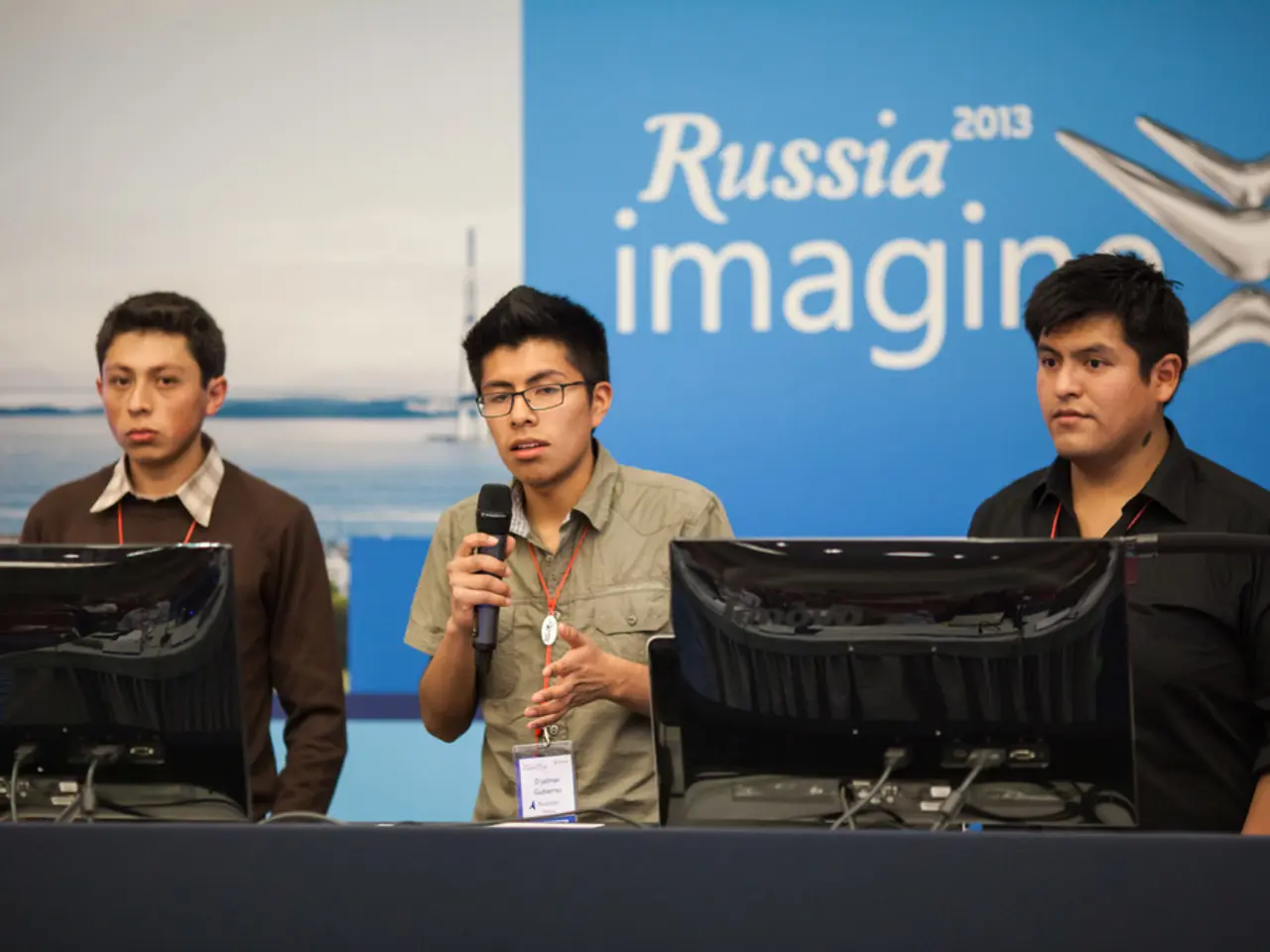Transformation in Workforce: The Impact of Artificial Intelligence on Jobs and the Future of Employment
Artificial Intelligence (AI) is revolutionising the workplace, bringing both challenges and opportunities to workers, employers, and the future of work.
For Workers
The advent of AI brings a wave of change, with potential job displacement affecting millions worldwide. According to a report, about 85 million jobs could be displaced by AI and automation globally by 2025, impacting industries such as manufacturing, transportation, finance, and customer service. However, AI is also expected to create around 97 million new tech-administered roles, complementing human labour rather than completely replacing it.
The rapid pace of AI development necessitates continuous learning for workers. They must not only update their technical skills but also develop soft skills like creativity and emotional intelligence, as well as hybrid skills to collaborate effectively with AI systems. Unfortunately, many workers, particularly older ones and those in traditional industries, lack the necessary digital literacy and technical skills.
For Employers
Employers face challenges in workforce planning and job redefinition as AI automates routine tasks and changes workflows. They must invest in employee development and upskilling to prepare current workers to collaborate with AI tools. Ethical and privacy concerns also arise when using AI for employee evaluation and performance monitoring.
However, the benefits are significant. AI streamlines business processes, enhancing productivity and safety. It enables better decision-making in hiring, talent management, and workforce optimisation through unbiased analysis of large data sets. Companies leading thoughtful adoption and integration of AI technologies can unlock greater value by redesigning workflows end-to-end rather than simply adding AI tools to existing processes.
For the Future of the Workplace
The impact of AI is likely to exacerbate income inequality, with those able to adapt benefiting more than those displaced or unable to upskill. Geographic disparities may also arise, with regions with strong tech sectors gaining more AI benefits, while others may struggle to adapt. The adoption and effective use of generative AI tools by frontline workers have plateaued, indicating barriers in access or training that need addressing.
Despite these challenges, the future workplace will likely be characterised by human-AI collaboration, creating new types of jobs and career paths. AI could contribute trillions of dollars to the global economy over the next decade. Jobs requiring complex human interaction, creative problem-solving roles, physical trades and manual labor, healthcare positions requiring empathy and judgment, and leadership and strategic planning roles are lower-risk categories for AI disruption.
Navigating the AI-Integrated Workplace
Success in an AI-integrated workplace requires proactive adaptation for individual workers. AI and humans working in complementary ways offer enhanced productivity, improved decision-making, 24/7 capabilities, and scalability. Government and institutional responses will be crucial in shaping how AI impacts work, including education system reform, safety net improvements, regulation and standards, and support for displaced workers.
The integration of AI into the workplace presents significant challenges for workforce development and education, including a skills gap, the need for continuous learning, and the development of hybrid skills. Growing demand for AI specialists, human-AI interaction designers, AI ethics and safety roles, and hybrid roles is expected.
American workers express more concern than excitement about AI use in their workplaces. The benefits of AI may not be distributed equally across all workers and communities. Companies that want to successfully integrate AI while maintaining a productive workforce should invest in training, plan thoughtful implementation, focus on augmentation, and support workforce transition.
In conclusion, AI is reshaping work by displacing some jobs while creating new ones, demanding continuous learning, driving organisational change, and posing ethical challenges related to privacy and equality. Employers who proactively upskill workers, redefine workflows, and lead ethical AI integration will be best positioned to harness AI’s transformative potential.
[1] McKinsey & Company. (2017). Jobs lost, jobs gained: What the future of work will mean for jobs, skills, and wages. [2] World Economic Forum. (2018). The future of jobs report 2018. [3] Deloitte. (2019). The future of work: The augmented workforce. [4] PwC. (2020). AI in the workplace: A global perspective.
Technology advancements, specifically artificial-intelligence (AI), necessitate continuous learning for workers to adapt and succeed in the AI-integrated workplace. Employers must invest in employee development and upskilling, focusing on a combination of technical and soft skills, to prepare for human-AI collaboration. [1] [3]
AI's integration into the workforce also raises ethical and privacy concerns, which should be addressed through regulation, standards, and meaningful support for the displaced workers. Governments and institutions play a crucial role in reshaping AI's impact on work, and education system reform is a key aspect of this transformation. [2] [4]




